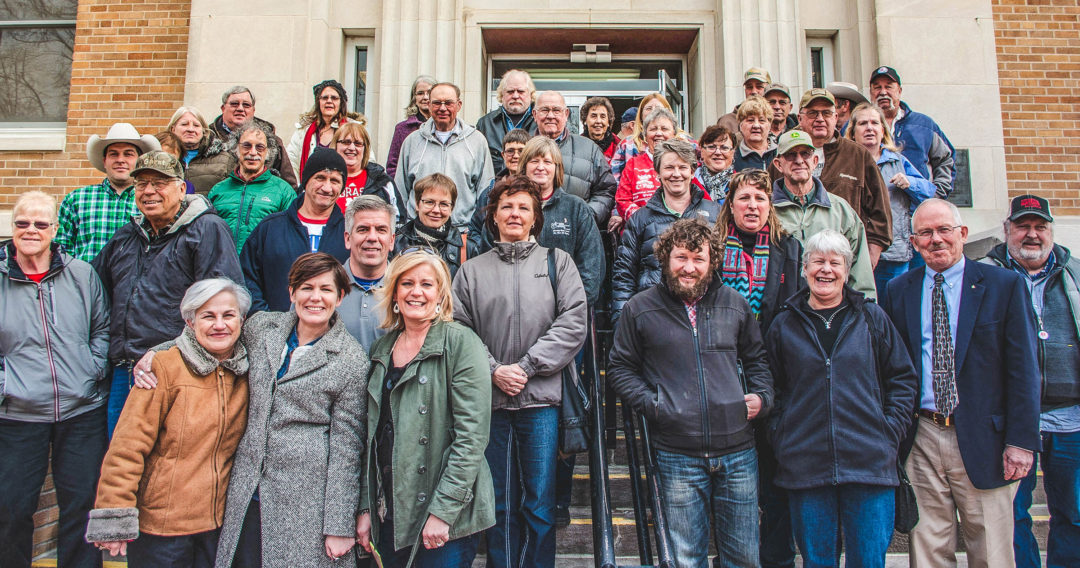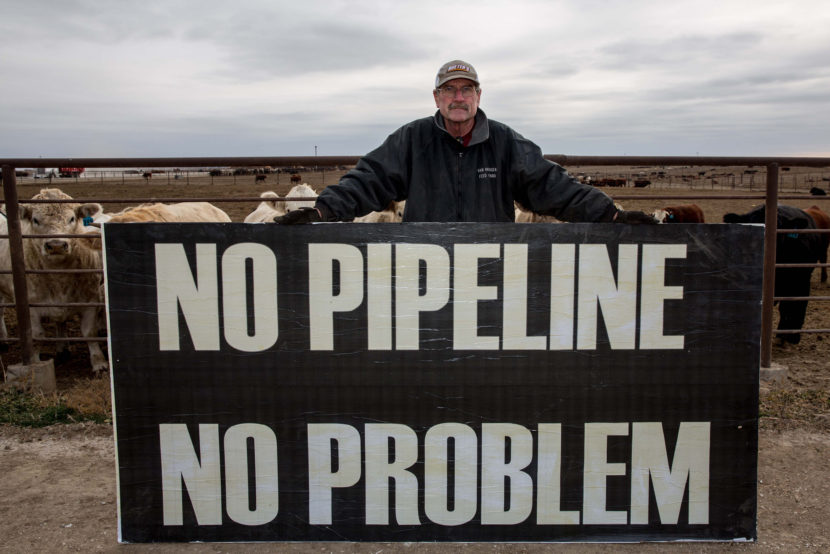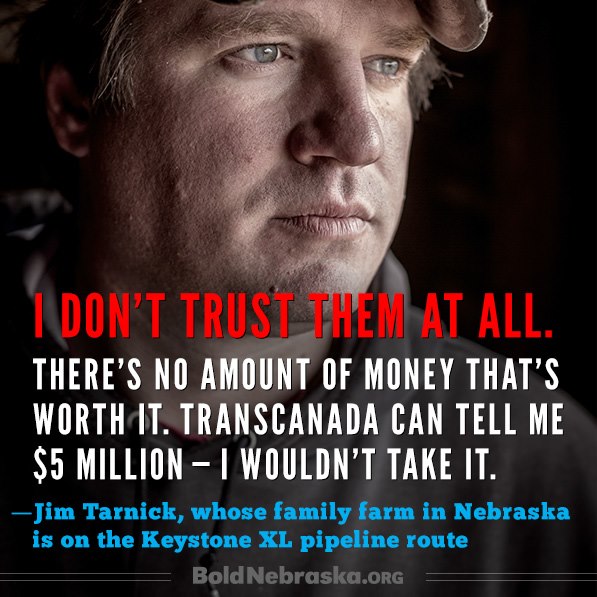No Eminent Domain for Private Gain


GOAL
Bold’s goal is to end the practice of using eminent domain for private gain to take landowners’ property against their wishes for pipelines. Big Oil and Big Gas corporations are abusing the power of eminent domain to build pipelines — mostly for export — that risk our land, water and climate.
A federal and state-based solution is needed that protects all Americans’ property rights beyond fancy talking points from politicians on the campaign trail. A clear process must be laid out for pipelines, since right now each state does it differently adding confusion to a process already rigged for Big Oil and Big Gas. The “public good” for all citizens that eminent domain was founded on is now being used against the public goods of clean air, water, climate and the security of our land — especially those whose livelihoods are dependent on the land—the farmers, ranchers and Tribal Nations.


BACKGROUND
American landowners face serious risks with eminent domain for private gain, beyond the obvious loss of property rights. If a permitting agency like FERC or the State Department rejects a pipeline, exactly like what happened with Keystone XL, the pipeline company still owns the landowners’ property it took through eminent domain. Pipeline companies whose permit was rejected by FERC or the State Dept. can still turn around and sell the easements to any company they wish, and the landowner has no say in the land sale process.
We see a clear connection between climate change and the abuse of eminent domain for private gain for pipelines. Agricultural communities (crop farming, fisherfolk, cattle producers) rely on clean water and soil for their livelihoods and America’s food supply. Climate change is a clear risk to these livelihoods. Pipelines put livelihoods at direct risk of spills and explosions. With the additional risk of droughts and extreme weather that come along with climate change, we simply can not continue to allow corporations to abuse eminent domain to build these risky pipelines.
IN THE COURTS
While there have been various eminent domain cases that have been argued at the Supreme Court, it is the landmark “Kelo” case that unfairly broadened the use of eminent domain for private gain.
Kelo vs the City of New London was a 5-4 decision in 2005. This case solidified into law the ability of governments to take private land and hand it over to for-profit companies for energy projects or other purposes. In the Kelo case, homes were destroyed for the development of a strip mall that was never actually developed. In the wake of the Kelo decision, by 2006 states were passing new laws to try to protect property rights. However, some states including Nebraska instead actually passed industry-friendly regulation to broaden the use of eminent domain for pipelines and other private uses.
ACTION
When citizens fight eminent domain and pipelines, the big corporations often tell landowners and elected officials there is nothing they can do to stop the pipeline, and that the state or county has no power over the pipeline because it is regulated at the federal level. This is NOT true.
States can influence various aspects of oil pipelines:
- Eminent domain process and terms (or enact an outright ban on “private gain” uses)
- Siting and routing of pipelines
- Easement abandonment of unused/out of service pipe
- Emergency and spill response planning
- Bonding for road use and other insurance issues
- Liability for spills
- Regulation of neighboring land uses
CAMPAIGN STATUS
States are beginning to stand up to eminent domain abuse, and see the fundamental difference between public good and private gain.
- Kentucky stood with landowners and told the Bluegrass Pipeline it cannot use eminent domain because the company’s project was for private gain.
- South Carolina lawmakers introduced a bill spurred by an export pipeline Kinder Morgan wants to build that forbids private, for-profit pipeline companies from using eminent domain.
- Georgia recently told Kinder Morgan it could not use eminent domain because the company’s pipeline has no public use.
These are hardly “blue” states. These are states with strong leaders standing up for property rights with actions, not words.
Bold Alliance is currently in the process of creating a Pipeline Fighter Network.
RESOURCES
- Keystone XL: Find research papers and action ideas from Bold Nebraska’s six-year pipeline fight.
- The Nebraska Easement Action Team was an allied group during Bold Nebraska’s KXL fight that organized landowners into a legal group, the archived website has great information.
- Domina Law Group provides an overview on the legal issues and challenges of TransCanada exerting powers of eminent domain to take U.S. citizens’ land, including links to all the lawsuits filed during Bold Nebraska’s KXL fight and a legislative memo on what states can do to regulate oil pipelines.
- The Pipeline Safety Trust is a national citizen group that pushes for safer pipelines. They have a Landowners Guide and an annual conference.
- Standing Bold: Bold Nebraska interviewed many of the landowners who joined with the Nebraska Easement Action Team to collectively battle eminent domain claims against their land for Keystone XL, about their experiences with TransCanada and during the years-long court battle they fought (and continue to fight!). An excerpt from the documentary film project is below.

